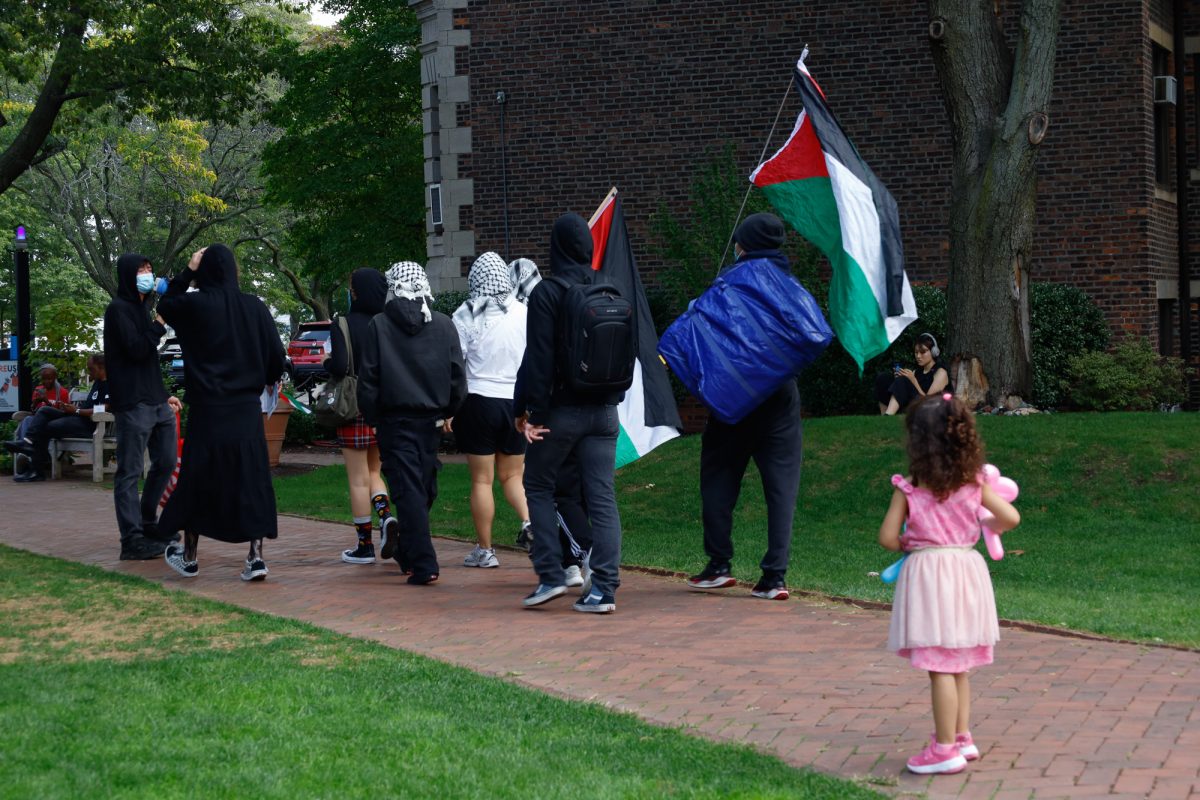Researchers from Boston University and Duke University have found a number of potentially dangerous gas leaks in Washington, D.C.’s aging underground pipelines, according to a study published Thursday.
College of Arts and Sciences professor of Earth and environment Nathan Phillips and six other researchers conducted a street survey during January and February of 2013 that found a total of 5,893 gas leaks in the nation’s capital, including 12 locations where potentially explosive Grade 1 methane concentrations were found in manholes, Phillips said.
“It’s about four leaks per mile, and that’s a very large number,” Phillips said. “That means that those people in the city are walking by, driving by, in fact, almost everyone in the city is going to be in contact with several leaks.”
The leaks, if left unfixed, may have detrimental effects on the local environment of Washington, D.C., Phillips said. In the long run, increases in methane levels may also contribute to climate change.
“At the point of the leak, the leaks have explosive potential in some cases, so that’s a human safety issue,” Phillips said. “Also at that same scale, if the leaks get into the roots of grasses or shrubs or trees, they have the effect of damaging vegetation.”
Not only are the gas leaks harmful to the environment, but the financial implications of excessive gas leakage make it necessary to repair them as quickly as possible, said Duke University professor and member of the research team Robert Jackson.
“Lost natural gas costs consumers three billion dollars a year,” Jackson said. “Hydrocarbons like methane and ethane catalyze ozone formation that affects air quality. Methane is a potent greenhouse gas, so methane leaks lead to climate change. And finally, in rare cases, they are a consumer safety issue. All of these reasons points to repairing leaks more quickly.”
Philips and Jackson also participated in a similar study that was conducted in Boston in 2012. The study, whose results were published in a November edition of the online journal Environmental Pollution, found over 3,000 methane leaks in the city of Boston.
While the Washington, D.C. and Boston studies found a large number of leaks, researchers found in Washington, D.C. showed higher concentrations of methane gas, Jackson said.
“In only one other city has anyone done this before–that was our work in Boston a year ago,” Jackson said. “In D.C., we found a similar number of leaks per mile, but the concentrations were higher.”
Citing a 2013 report from the United States House Committee on Natural Resources, Phillips said U.S. consumers have paid more than $20 billion for lost-and-unaccounted-for natural gas.
“That’s the same situation in D.C.,” said Phillips. “So it’s lost money and it’s passed along to the consumers. Even if it weren’t passed along to consumers, it’s still losing a very valuable commodity, a very valuable resource.”
The team informed leading Washington, D.C. gas company Washington Gas of potentially explosive leaks in February, although the company took care of only some of the leaks.
“The pipes need replacement — not just repair, but replacement,” Phillips said. “Because repair means putting on a Band-Aid on a leaking pipe, it’s a really short term fix. Replacement is what’s needed. We need to maintain that infrastructure.”
Bob Ackley, president and owner of Gas Safety, Inc. and partner in the study, said the large number of unattended gas leaks is not an uncommon problem for a city such as Washington, D.C.
“Any of the old cities are going to be in the same situation,” he said. “Any city that’s got an old cast-iron, low pressure gas system is going to be prone to the same problems, whether it be San Francisco, Detroit [or] Chicago.”
Ackley suggested investing in the city’s infrastructure to address the unfixed gas leaks.
“[Massachusetts Senator] Ed Markey’s got a bill in the senate to replace most of the aging cast-iron and bare steel pipes across the country,” Ackley said. “And that’s what we need to do, to invest in the infrastructure.”


















































































































